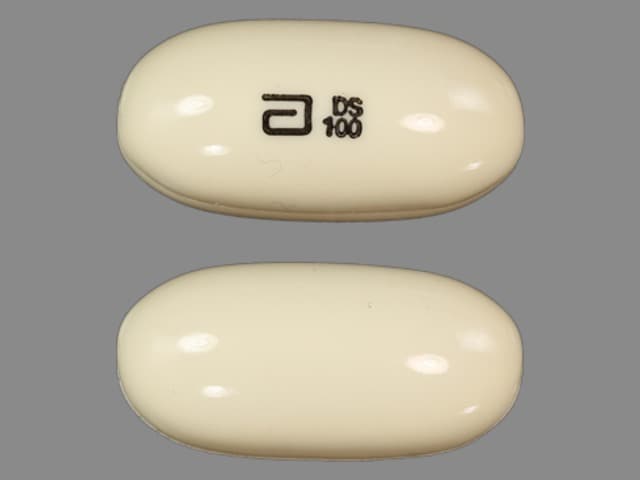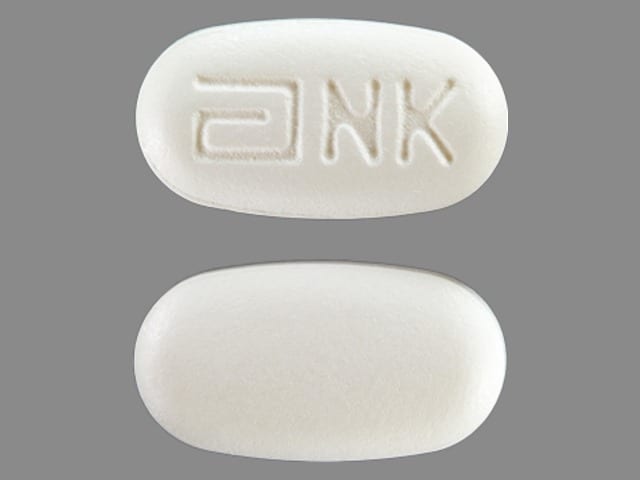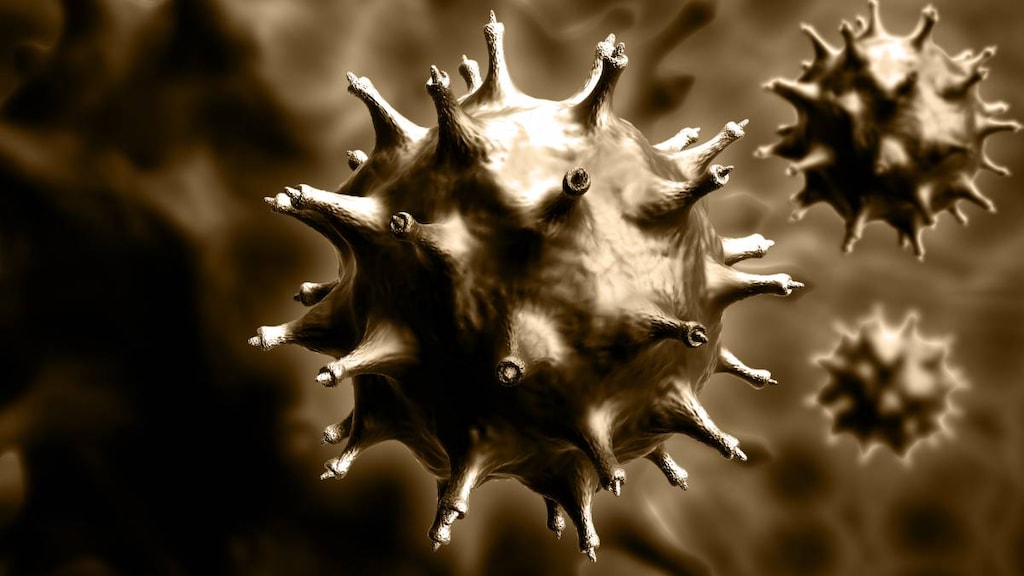What is Norvir?
- Norvir tablets and oral solution are prescription medicines that are used with other antiviral medicines to treat people with human immunodeficiency virus (HIV-1) infection.
- Norvir oral powder is a prescription medicine that is used with other antiviral medicines to treat children with HIV-1 infection.
HIV-1 is the virus that causes AIDS (Acquired Immune Deficiency Syndrome).
What is the most important information I should know about Norvir?
- Norvir can interact with other medicines and cause serious side effects. It is important to know the medicines that should not be taken with Norvir. See the section “Who should not take Norvir?”
Who should not take Norvir?
Do not take Norvir if you or your child:
- are allergic to ritonavir or any of the ingredients in Norvir.
See the end of this guide for a complete list of ingredients in Norvir. - If you take any of the following medicines:
- alfuzosin
- apalutamide
- ranolazine
- dronedarone
- colchicine, if you have kidney or liver problems.
- lurasidone
- pimozide
- amiodarone
- ergot-containing medicines including:
- dihydroergotamine mesylate
- ergotamine tartrate
- methylergonovine maleate
- cisapride
- flecainide
- lovastatin
- simvastatin
- lomitapide
- sildenafil (Revatio) only when used for treating the lung problem, pulmonary arterial hypertension (PAH)
- triazolam
- midazolam when taken by mouth
- propafenone
- quinidine
- St. John’s Wort (Hypericum perforatum) or a product that contains St. John’s wort
- voriconazole if your Norvir dose is 400 mg every 12 hours or greater
Serious problems can happen if you or your child takes any of these medicines with Norvir.
What should I tell my healthcare provider before taking Norvir?
Before taking Norvir, tell your healthcare provider about all of your medical conditions, including if you or your child:
- have liver problems, including Hepatitis B or Hepatitis C
- have heart problems
- have high blood sugar (diabetes)
- have bleeding problems or hemophilia
- are pregnant or plan to become pregnant.
- Norvir oral solution contains alcohol. You should not take Norvir oral solution during pregnancy because there is no known safe level of alcohol exposure during pregnancy. Tell your healthcare provider if you become pregnant during treatment with Norvir.
- Norvir may reduce how well hormonal birth control works. Females who may become pregnant should use another effective form of birth control or an additional barrier method of birth control during treatment with Norvir.
- Pregnancy Registry: There is a pregnancy registry for women who take antiviral medicines during pregnancy. The purpose of the registry is to collect information about the health of you and your baby. Talk to your healthcare provider about how you can take part in this registry.
- are breastfeeding or plan to breastfeed. Do not breastfeed if you take Norvir.
- You should not breastfeed if you have HIV-1 because of the risk of passing HIV-1 to your baby.
- Norvir may pass into your breastmilk.
- Talk to your healthcare provider about the best way to feed your baby.
Tell your healthcare provider about all the medicines you take including prescription and over-the-counter medicines, vitamins, and herbal supplements. Some medicines interact with Norvir. Keep a list of your medicines to show our healthcare provider and pharmacist.
- You can ask your healthcare provider or pharmacist for a list of medicines that interact with Norvir.
- Do not start taking a new medicine without telling your healthcare provider. Your healthcare provider can tell you if it is safe to take Norvir with other medicines.
How should I take Norvir?
See the detailed Instructions for Use for information about how to give or take a dose of Norvir oral powder.
- Take Norvir exactly as your healthcare provider tells you to take it.
- You should stay under a healthcare provider's care during treatment with Norvir. Do not change your dose of Norvir or stop your treatment without talking with your healthcare provider first.
- If your child is taking Norvir, your child’s healthcare provider will decide the right dose based on your child's height and weight. Tell your healthcare provider if your child’s weight changes. If your child does not tolerate Norvir oral solution or Norvir oral powder, ask your child’s healthcare provider for advice.
- Swallow Norvir tablets whole. Do not chew, break, or crush tablets before swallowing. If you cannot swallow NORVIR tablets whole, tell your healthcare provider. You may need a different medicine.
- Take Norvir with meals.
- Norvir oral solution is peppermint or caramel flavored.
- You can take it alone, or may improve the taste by mixing it with 8 ounces of chocolate milk, Ensure, or Advera.
- Norvir oral solution should be taken within 1 hour after mixing with these fluids.
- Ask your healthcare provider, nurse or pharmacist about other ways to improve the taste of NORVIR oral solution.
- Do not run out of Norvir. Get your Norvir prescription refilled from your healthcare provider or pharmacy before you run out.
- If you miss a dose of Norvir, take it as soon as possible and then take your next scheduled dose at its regular time. If it is almost time for your next dose, wait and take the next dose at the regular time. Do not double the next dose.
- If you take too much Norvir, call your local poison control center or go to the nearest hospital emergency room right away.
- Contact your doctor if you are planning to take Norvir Oral Solution through a feeding tube because some feeding tubes are not recommended for use with ethanol and/or propylene glycol-containing products like Norvir.
What are the possible side effects of Norvir?
Norvir can cause serious side effects including:
- See “What is the most important information I should know about Norvir?”
- Liver problems. Some people taking Norvir in combination with other antiviral medicines have developed liver problems which may be life-threatening. Your healthcare provider should do regular blood tests during your combination treatment with Norvir. If you have chronic hepatitis B or C infection, your healthcare provider should check your blood tests more often because you have an increased chance of developing liver problems. Tell your healthcare provider right away if you get any of the following signs and symptoms of liver problems:
- loss of appetite
- pain or tenderness on your right side below your ribs
- yellowing of your skin or whites of your eyes
- itchy skin
- Inflammation of your pancreas (pancreatitis). Norvir can cause serious pancreas problems, which may lead to death. Tell your healthcare provider right away if you have signs or symptoms of pancreatitis such as:
- nausea
- stomach (abdomen) pain
- vomiting
- Allergic reactions. Sometimes these allergic reactions can become severe and require treatment in a hospital. Call your healthcare provider right away if you develop a rash. Stop taking Norvir and get medical help right away if you have any of the following symptoms of a severe allergic reaction:
- trouble breathing
- wheezing
- dizziness or fainting
- throat tightness or hoarseness
- fast heartbeat or pounding in your chest (tachycardia)
- sweating
- swelling of your face, lips or tongue
- muscle or joint pain
- blisters or skin lesions
- mouth sores or ulcers
- Changes in the electrical activity of your heart called PR prolongation. PR prolongation can cause irregular heartbeats. Tell your healthcare provider right away if you have symptoms such as:
- dizziness
- lightheadedness
- feel faint or pass out
- abnormal heart beat
- Increase in cholesterol and triglyceride levels. Treatment with Norvir may increase your blood levels of cholesterol and triglycerides. Your healthcare provider should do blood tests before you start your treatment with Norvir and regularly to check for an increase in your cholesterol and triglycerides levels.
- Diabetes and high blood sugar (hyperglycemia). Some people who take protease inhibitors including Norvir can get high blood sugar, develop diabetes, or your diabetes can get worse. Tell your healthcare provider if you notice an increase in thirst or urinate often during treatment with Norvir.
- Changes in your immune system (Immune Reconstitution Syndrome) can happen when you start taking HIV-1 medicines. Your immune system may get stronger and begin to fight infections that have been hidden in your body for a long time. Call your healthcare provider right away if you start having new symptoms after starting your HIV-1 medicine.
- Change in body fat can happen in some people who taking HIV-1 medicines. These changes may include an increased amount of fat in the upper back and neck (“buffalo hump”), breast, and around the middle part of your body (trunk). Loss of fat from the legs, arms, and face may also happen. The exact cause and long-term health effects of these conditions are not known.
- Increased bleeding for hemophiliacs. Some people with hemophilia have increased bleeding with protease inhibitors including Norvir.
The most common side effects of Norvir include:
- diarrhea
- nausea
- vomiting
- upper and lower stomach (abdominal) pain
- tingling feeling or numbness in hands or feet or around the lips
- rash
- feeling weak or tired
Norvir oral solution contains a large amount of alcohol. If a toddler or young child accidentally drinks more than the recommended dose of Norvir, it could make him/her sick from too much alcohol. Go to the nearest emergency room right away if this happens.
These are not all of the possible side effects of Norvir. Call your doctor for medical advice about side effects. You may report side effects to FDA at 1-800-FDA-1088.
Norvir Images
General information about the safe and effective use of Norvir
Medicines are sometimes prescribed for purposes other than those listed in a Patient Information Leaflet. Do not use Norvir for a condition for which it was not prescribed. Do not give Norvir to other people, even if they have the same symptoms that you have. It may harm them. You can ask your pharmacist or healthcare provider for information about Norvir that is written for healthcare professionals.
How should I store Norvir?
- Store Norvir tablets and Norvir oral solution in the original container given to you by the pharmacist.
- Use Norvir tablets, Norvir oral solution, and Norvir oral powder by the expiration date.
Store Norvir tablets:
- Store below 30°C (86°F). Exposure to temperatures up to 50°C (122°F) for seven days permitted.
- Exposure to high humidity outside the original container for longer than 2 weeks is not recommended.
Store Norvir oral solution:
- At room temperature between 20°C to 25°C (68°F to 77°F).
- Do not refrigerate.
- Shake well before each use.
- Keep away from heat.
- Keep bottle cap tightly closed.
Store Norvir oral powder:
- At or below 30°C (86°F).
Keep Norvir and all medicines out of the reach of children.
What are the ingredients in Norvir?
Active ingredient: ritonavir
Inactive ingredients:
Norvir tablet: copovidone, anhydrous dibasic calcium phosphate, sorbitan monolaurate, colloidal silicon dioxide, and sodium stearyl fumarate. The film coating contains: hypromellose, titanium dioxide, polyethylene glycol 400, hydroxypropyl cellulose, talc, polyethylene glycol 3350, colloidal silicon dioxide, and polysorbate 80.
Norvir oral solution: ethanol, water, polyoxyl 35 castor oil, propylene glycol, anhydrous citric acid to adjust pH, saccharin sodium, peppermint oil, creamy caramel flavoring, and FD&C Yellow No. 6.
Norvir oral powder: copovidone, sorbitan monolaurate, and colloidal silicon dioxide.






